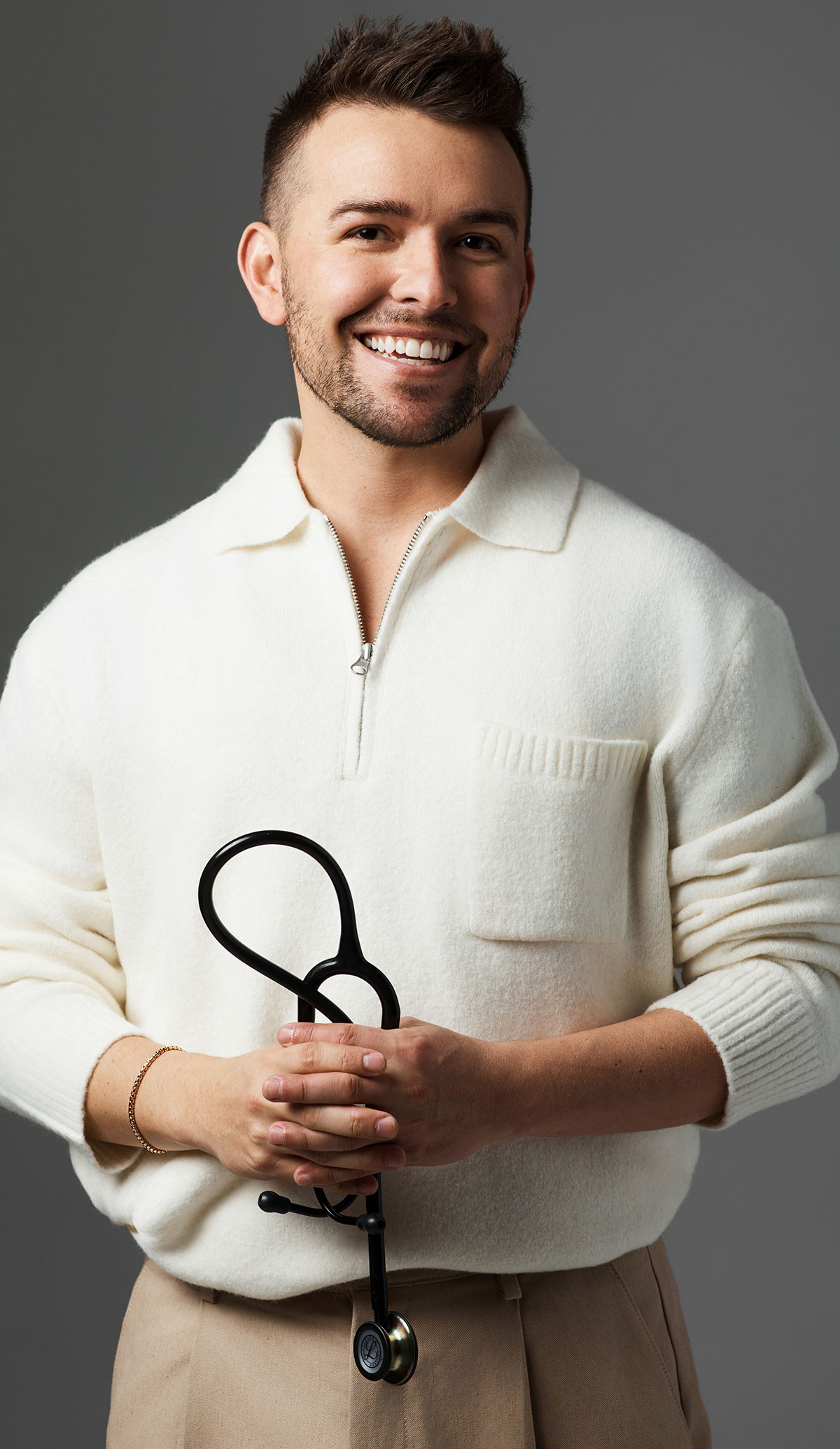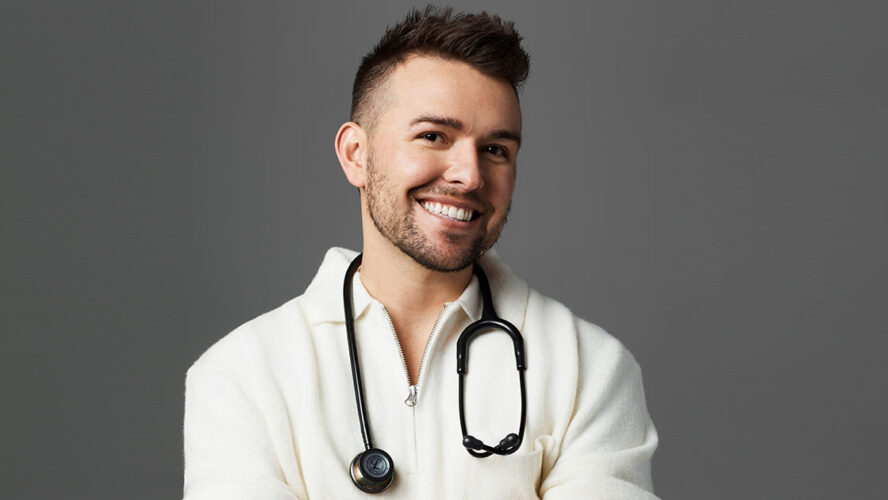Creator and comedian Nurse Blake shares how personal hardships, humor, and a commitment to patient connection shaped his approach to healthcare.
What made you want to become a nurse, and what keeps you passionate about it today?
When I was younger, in my teens, I went through gay conversion therapy from 15 to 18. I didn’t get a lot of love and a lot of care. I think because of that experience, I wanted to show love and care to other people. That definitely is something that got me interested in healthcare and nursing. My dad is a respiratory therapist, so he also got me into healthcare. Nursing does provide a little more opportunity than respiratory, so I thought it would be a great route for me to go. I’ve just always been interested in trauma, specifically adult trauma, and I like the adrenaline rush.
You’ve talked about the importance of laughter. Can you share a funny or memorable moment that helped get you through a hard shift?
I love to integrate humor into my practice. I like to be very personal, very real, very raw with my patients. I feel like it helps break down that barrier. At the end of the day, I’m a person too, and I’m here to care for you and laugh with you.
I remember one patient; she had been on the unit for quite a few months, waiting for a liver transplant. I was working in Houston, Texas, in the liver transplant ICU, and she wanted to go outside. She hadn’t been outside in months. I was like, “You know what, I’m going to take you outside.” When a person’s hooked up to so many machines and medications, it’s very hard, so it took the team and I two hours to get her ready to transport her outside. Y’all, by the time we got outside, she was out there for maybe three minutes, and she was like, “It’s too hot out here.” She looked at me, I looked at her, and we just started laughing so hard. She felt so bad that we finally got her outside, but she was so happy to see the sun for a little bit. That little moment of real, raw honesty was definitely needed for both of us.
What advice do you have for nurses thinking about going back to school or getting an advanced degree?
Know that you really want it. A lot of people say that they want to do something different and go back to school without really realizing or thinking fully about what the role is. I know a lot of nurse practitioners who were overwhelmed at the bedside, went back to school, took on more loans, became nurse practitioners, and then didn’t realize what nurse practitioners really do. It’s a lot of charting, a lot of bureaucracy. Now they’re a burnt-out nurse practitioner with more student loans.

If you want to do it, do it. I highly recommend it. I’m a huge advocate for advancing your education and your career, but make sure you really, really want it. If you’re burnt out in your role right now, there are so many other jobs in nursing and healthcare you can get before going back to school. These colleges are a business, right? Right when we graduate with our associate’s or bachelor’s, it’s like, “When are you going back to school?” Why can’t being a staff nurse at the bedside be enough? It’s always this chase of having more letters behind your name. Take a deep breath and really think about it. Is this really what you want? Is there not another role you could switch to with the education you have now?
I want to see nurses happy. Every nurse deserves a job that makes them feel fulfilled, a job that’s safe — physically, emotionally, mentally, spiritually — and safe on their license. They deserve to be happy.
Long shifts are tough. What are some things that help you stay comfortable and energized?
Always be prepared to not be able to take a break. There aren’t even laws for nurses to get lunches. Some hospitals make us clock out and clock back in, even if we didn’t actually take a lunch. We’ll get in trouble for not clocking out, even if we had no time for breaks because we’re so short-staffed. Bring snacks. Take care of yourself when you’re off the clock so you can be on your A-game when you’re on the clock. Make sure you’re getting enough sleep and eating right when you’re off work, because when you’re at work, it’s really hard to eat right.
No matter how hard your day gets, know you’re not going to get it all done. Nurses always want to be perfect, but there’s no such thing as a perfect nurse, so shake that off. Just do as much as you can for your patients in the time you have.
Breathe. A lot of times, we forget to breathe. As someone who has panic attacks and anxiety, I know that when I forget to breathe, that’s when my mental health gets worse. I just put myself in the supply closet or the med room and breathe for a second.
If you’re overwhelmed, your patients probably are too, so take a break with them. Pull up a chair, even if it’s for a minute, just to connect. That has always helped me get through the really hard times. Laugh a little bit and tell a joke.
What’s one thing you wish hospitals or nurse leaders did to better support their teams?
It’s time for hospitals to listen to the nurses. If anyone knows what’s going on in the hospital that’s affecting patients and staff, it’s the nurses. We are with the patients the most. There’s the Nurses Association, and there’s also a big hospital association — CEOs and leaders at hospitals — they have their own lobby and stuff. A lot of times, the hospital association will fight against the Nurses Association. With this big, beautiful bill that’s getting passed, the hospital association is freaking out. It just goes to show that hospitals need to stick with their nurses a lot more. We know what’s going on, and we’d have so much more power if we worked together instead of against each other. Hospitals need to treat their staff the same way they expect staff to treat patients. They need to fight for us. At the end of the day, it affects our communities, and it affects us too, because we’re also members of the community. Even the executives and leaders — you are members. You may be a patient one day. Your family is going to need high-quality, safe care.


